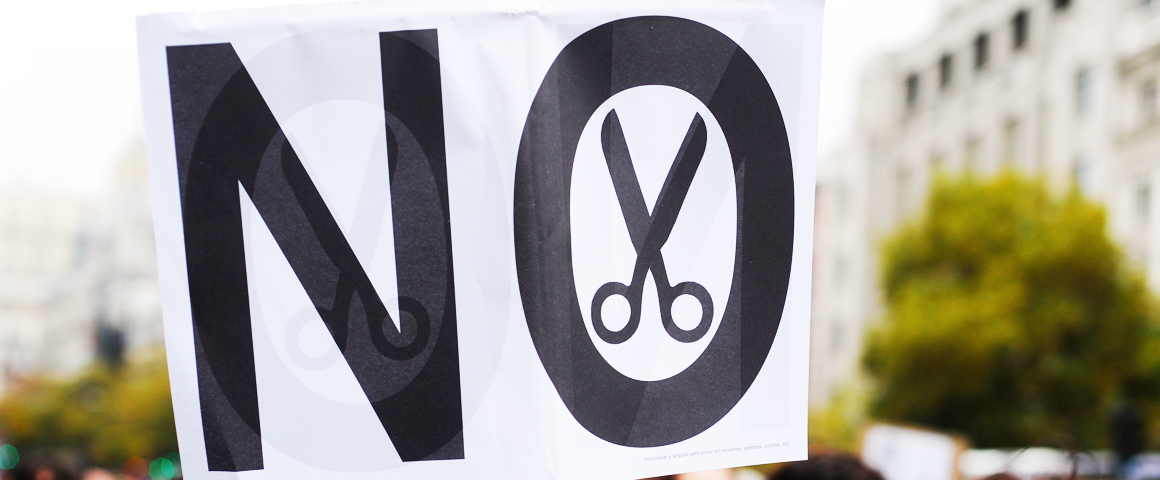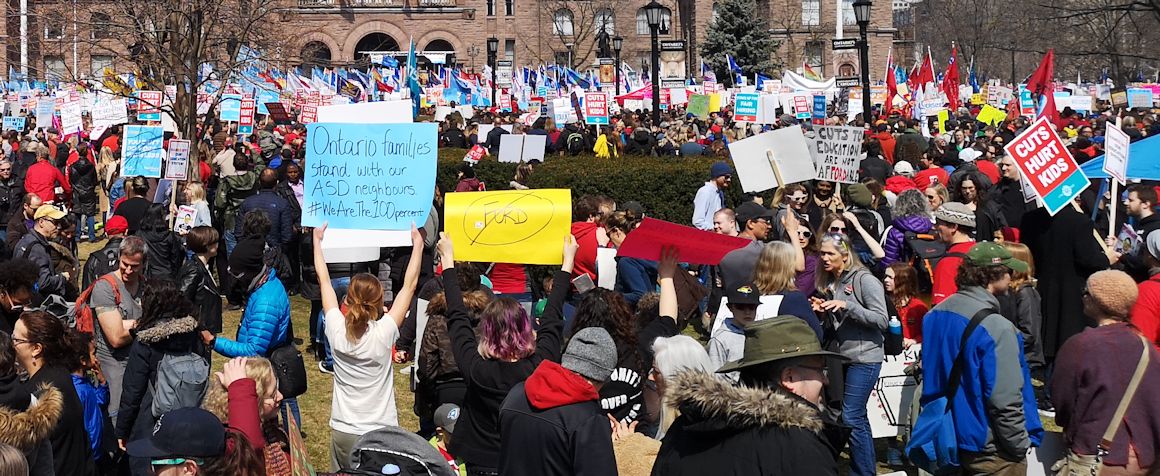PV Ontario Bureau
As the Ontario government prepares its 2018 provincial budget, which is expected in the early spring, labour and progressive organizations are pressing for a decisive turn away from austerity and privatization.
During pre-budget consultations, CUPE Ontario President Fred Hahn called for increased funding to physical and social infrastructure, highlighting the need for better funding to long-term care facilities. Hahn observed that individuals in Ontario now pay 3.5 times more taxes than corporations, the result of two decades of corporate tax cuts, and called for this to change.
The Ontario Health Coalition is calling for increased hospital funding, noting that 10 straight years of real-dollar budget cuts has produced a deep crisis. Ontario’s hospital funding is among the lowest in Canada and the OHC says that the province currently ranks “dead last of all provinces in the number of hospital beds per capita.” The Ontario Nurses Association has also called for significantly increased funding to hospitals, as well as to long-term care. ONA has also noted that Ontario has the worse Registered Nurse to population ration in Canada, and is calling for provincial funding to reverse this trend.
Anti-poverty activists are demanding large increases to social assistance rates, as well as structural changes so that would eliminate many punitive administrative tools and increase the minimum level of assistance. These groups, as well as labour organizations, are calling for funding to enforce compliance with the increased minimum wage and prevent employers from taking retaliatory action against workers, such as by reducing benefits, cutting shifts or paid breaks, or firing workers.
Housing advocates, as well as several municipalities, have raised the issue of provincial funding for affordable housing construction. They have noted the dire need for both new affordable units and for repair or upgrade of existing ones, and have pointed to a report from the provincial Auditor General, which found that there were more people on social housing waiting lists than residing in affordable housing.
The Communist Party of Canada (Ontario) provided a comprehensive submission calling explicitly for an end to austerity and privatization, and demanding a budget for full employment, expanded public services, equality, and progressive tax reform. The CPC(O) notes the devastating impact austerity policies have had on the working class – rapid and widespread growth of precarious employment, plant closures resulting in over 8000 jobs lost, lost wages and benefits, deep cuts to programs, and soaring costs for services including child care and tuition. At the same time, corporate profits have spiked, rising from $156 billion in 2008 to a projected $306 billion for 2017. Profits The Royal Bank of Canada alone announced a profit of $11.5 billion for the third quarter of 2017.
The Communist Party submission also positions issues of inequality and oppression as budget priorities. The pre-budget consultations are taking place at a time of resurgent fascism and growing racism, widespread harassment and violence against women, as well as a deep and continuing gender wage gap.
To confront and change this situation, the Communist Party identifies key budget priorities such as a shorter work week with no loss in take-home pay, further increases to the minimum wage, expansion of public services and publicly-owned industries, a ban on temporary employment agencies, enforced pay and employment equity, and significant increases to social assistance rates. The Party is also calling for expansions to public transit and public healthcare, increased funding to public services, a needs-based funding formula for public education and an end to funding to Catholic schools, a massive provincial housing program, a provincial system of universally accessible and quality public childcare, funding to anti-oppression and equity-seeking programs, and strong action on climate change and environmental protection.
On the financial side, the Communist Party calls for immediate progressive tax and financial reform based on ability to pay, to shift the tax burden onto corporations and the very rich. The Party’s submission notes that “all tax cuts in Ontario over the past two decades, the overwhelming majority of them benefitting the corporations and very rich, total $18 billion per year in lost revenue. This is the money that is needed to pay for infrastructure, expanded health care, public transit, job creation, and virtually all the measures that are badly needed by the province’s working class.”
After years of austerity measures, which were preceded by decades of neoliberal policies, the working class in Ontario needs a budget that moves in a completely different direction. As more and more movements and organizations press the government for a budget that reflects this need, it helps build the programmatic basis for a structured people’s movement that can organize and mobilize on a grassroots level, to win far-reaching economic, social and political reforms. Such a movement would strengthen the working class and its allies in the immediate struggle and, in the process, open the door for socialism and working class power.




